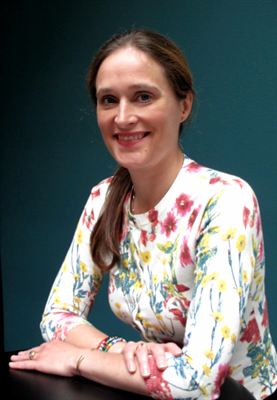Children’s daily life highly regulated

Children in Sweden and the US experience their daily life as highly structured and regulated. But while US children state that homework and long schooldays are what makes everyday life difficult, Swedish children point to the continuous nagging and stress that occur in relation to daily routines. These are some key findings of a new study from the University of Gothenburg.
‘The children in both countries talked about progressively less time available for own activities, but the things they focus on in their stories differ,’ says education researcher Ylva Odenbring.
Her interview-based study involved Swedish and US middle-class children 6–7 years old, all of whom had the economic means to participate in leisure activities.
‘Schoolification’ of childhood
Previous research indicates that in the Western world, children’s daily life is largely focused around the time they spend in educational institutions and the time they spend participating in various leisure activities. Researchers talk about a ‘schoolification’ of childhood as children spend a large portion of their time in various educational institutions from early childhood through adolescence.
Besides the time spent in educational institutions, children spend time engaging in leisure activities, and school-age children also have homework. Yet few previous studies have studied these issues from the children’s perspective.
Over-organised lives
‘The US children mention homework, long schooldays and leisure activities as the main reasons for why their daily life is so regulated. In contrast, the Swedish children point to the daily routines in connection with being taken to and picked up from school and the nagging and stress they associate with them,’ says Odenbring.
The study brings attention to some of the trends observed in many Western societies: that people’s daily lives, and this is also true for children, are becoming increasingly regulated and structured. The children’s descriptions of their everyday lives give an impression of overly organised lifestyles.
‘From a wider societal perspective, the study brings attention to the question of how children’s voices are included in the discussion on how to make everyday life less stressful and increase children’s wellbeing,’ says Odenbring.
The results of the study are published in the scholarly journal Early Child Development and Care. The title of the article is Childhood, free time and everyday lives: comparing children’s views in Sweden and the United States.
Link to the article: http://dx.doi.org/10.1080/03004430.2016.1250081
For more information:
Ylva Odenbring, associate professor of education, Department of Education, Communication and Learning, email: ylva.odenbring@gu.se, tel. +46 (0)31 786 2840
Torsten Arpi
Communications Officer
Tel: +46 (0)768-58 11 87
Email: torsten.arpi@ped.gu.se
University of Gothenburg is one of the major universities in Europe, with about 37 800 students and a staff of 6 200. Its eight faculties offer training in the Creative Arts, Social Sciences, Natural Sciences, Humanities, Education, Information Technology, Business, Economics and Law, and Health Sciences. The University’s unique breadth in education and research provides an interdisciplinary environment conducive to collaboration with private enterprise and public institutions. The quality of the University has earned recognition in the form of numerous awards, including a recent Nobel Prize, and a steady stream of applicants at all levels.


